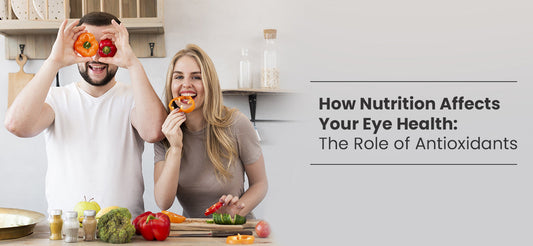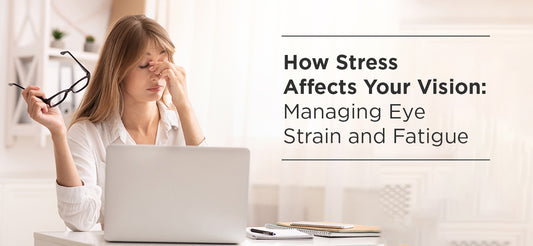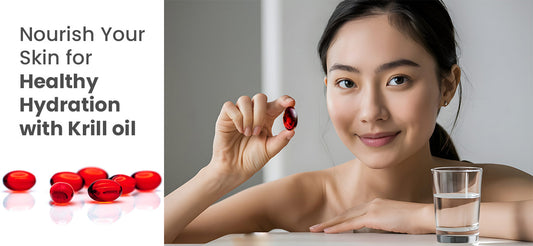Maintaining good eye health is essential, especially in today’s digital age where our eyes are constantly exposed to screens. While regular eye check-ups and reducing screen time are crucial steps, what we consume also plays a vital role in eye care. Among the nutrients that support eye health, lutein stands out as particularly beneficial. This antioxidant is known for its protective qualities, helping to maintain vision and reduce the risk of eye-related issues. In this blog, we will explore which lutein-rich foods you should incorporate into your diet to support better eye health.
Understanding Lutein and Its Benefits for Eye Health
What is Lutein?
Lutein is a type of carotenoid, a naturally occurring pigment found in many fruits and vegetables1. It is best known for its vibrant yellow and orange hues, which you can see in foods like carrots and corn. However, lutein isn’t just a pigment; it is a powerful antioxidant that plays a crucial role in protecting our eyes.
How Does Lutein Support Eye Health?
Here are a few reasons why one must not underestimate the importance of lutein for our eye health.
Top Lutein-Rich Foods to Include in Your Diet
Incorporating lutein-rich foods into your daily diet is a natural way to boost your eye health.
Here are some of the top sources of lutein:
○ Leafy Greens
○ Colourful Vegetables
○ Fruits
○ Egg Yolks
Eggs, especially the yolks, are a fantastic source of lutein. They are easy to incorporate into your diet through breakfast dishes, salads, or as a protein-rich snack.
○ Nuts and Seeds
○ Seafood
○ Fortified Foods
Tips to Incorporate Lutein-Rich Foods into Your Daily Diet
Incorporating lutein-rich foods into your diet doesn’t have to be complicated. Here are some simple and delicious ways to ensure you’re getting enough lutein:
- Simple Meal Ideas
- Snacking on Nuts and Seeds: Keep a stash of pistachios or pumpkin seeds on hand for a quick, healthy snack. These are easy to carry with you and provide a good amount of lutein along with other essential nutrients.
- Cooking with Lutein-Rich Vegetables: Incorporate lutein-rich vegetables like carrots, peppers, and spinach into your meals. Whether you are making a stir-fry, soup, or roasted veggies, these foods add both flavor and health benefits.
When to Consider Eye Health Supplements
While it is best to get your nutrients from food, there are times when supplements may be necessary to ensure you’re meeting your lutein needs.
As we age, our bodies may not absorb nutrients as efficiently as they once did, or we might have dietary restrictions that make it challenging to get enough lutein from food alone. In such cases, eye health supplements can be a helpful addition to your routine5,6.
Supplements can provide a concentrated dose of lutein, ensuring that your eyes get the protection they need. This can be particularly beneficial for those at risk of age-related eye diseases or those with a family history of such conditions.
How to Choose the Right Lutein Supplement?
When selecting a supplement, look for those that contain a sufficient amount of lutein, are free from unnecessary fillers, and have been tested for quality. Consulting with a healthcare provider before starting any supplement regimen is also a good idea to ensure it is the right choice for your needs.
Additional Tips for Maintaining Optimal Eye Health
Beyond diet, there are several other strategies you can adopt to keep your eyes healthy.
Incorporating lutein-rich foods into your diet is a simple and effective way to support better eye health. By regularly consuming these foods, you can help protect your eyes from damage, reduce the risk of eye diseases, and improve your overall vision. Remember, a healthy diet is just one part of maintaining good eye health - regular check-ups and mindful lifestyle choices are also key. Prioritize your eye care today by adding more lutein-rich foods to your meals, and give your vision the support it needs.
References
- Buscemi, S., Corleo, D., Di Pace, F., Petroni, M., Satriano, A., & Marchesini, G. (2018). The effect of Lutein on Eye and Extra-Eye health. Nutrients, 10(9), 1321. https://doi.org/10.3390/nu10091321
- Roberts, J. E., & Dennison, J. (2015). The photobiology of lutein and zeaxanthin in the eye. Journal of Ophthalmology, 2015, 1–8. https://doi.org/10.1155/2015/687173
- Feng, L., Nie, K., Jiang, H., & Fan, W. (2019). Effects of lutein supplementation in age-related macular degeneration. PLoS ONE, 14(12), e0227048. https://doi.org/10.1371/journal.pone.0227048
- Hammond, B. R., Fletcher, L. M., Roos, F., Wittwer, J., & Schalch, W. (2014). A Double-Blind, Placebo-Controlled study on the effects of lutein and zeaxanthin on photostress recovery, glare disability, and chromatic contrast. Investigative Ophthalmology & Visual Science, 55(12), 8583–8589. https://doi.org/10.1167/iovs.14-15573
- Li, L. H., Lee, J. C., Leung, H. H., Lam, W. C., Fu, Z., & Lo, A. C. Y. (2020). Lutein supplementation for eye diseases. Nutrients, 12(6), 1721. https://doi.org/10.3390/nu12061721
- Machida, N., Kosehira, M., & Kitaichi, N. (2020). Clinical Effects of Dietary Supplementation of Lutein with High Bio-Accessibility on Macular Pigment Optical Density and Contrast Sensitivity: A Randomized Double-Blind Placebo-Controlled Parallel-Group Comparison Trial. Nutrients, 12(10), 2966. https://doi.org/10.3390/nu12102966





